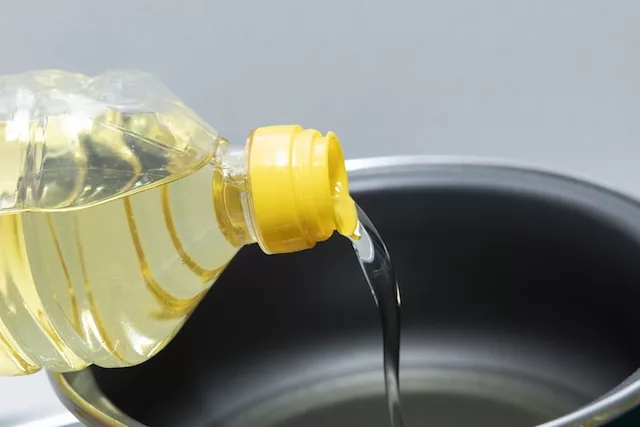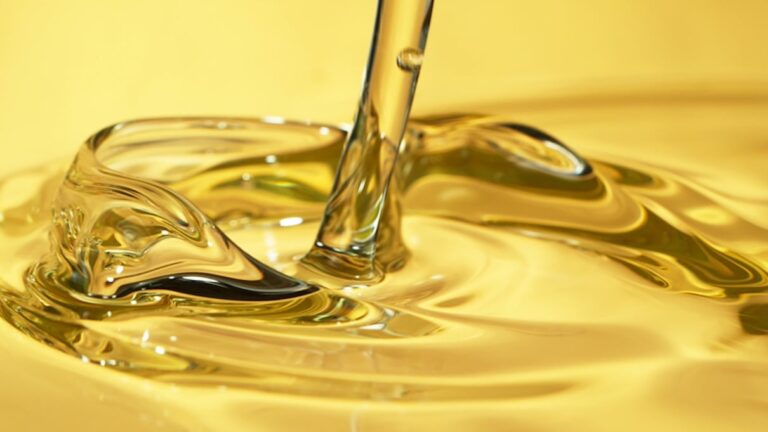Want to know what’s lurking in your food that is harmful to your health? Seen oils.
Seed oils have been a hot topic in the nutrition world lately, thanks to the controversy about their health impacts on the body. You’ve probably heard debates about their health effects and seen terms like “high in omega-6” or “inflammatory” thrown around. But what are seed oils, and should you be avoiding them? In this article, we’ll break down what seed oils are, how they can impact your health, where you’ll find them in your diet, and explore some healthier alternatives.
What Are Seed Oils?


Seed oils are vegetable oils extracted from the seeds of plants. Referred to as the “Hateful Eight”, these dangerous seed oils include:
- Canola oil
- Soybean oil
- Sunflower oil
- Safflower oil
- Grapeseed oil
- Cottonseed oil
- Corn oil
- Rice bran oil
The oils are typically then processed through one of two extraction methods, including cold pressing, which mechanically extracts the oil (often preserving nutrients and flavor), or Chemical Solvent Extraction, where the seeds are crushed and treated with solvents to extract the oil and then refined, bleached, and deodorized.
Seed oils are widely used in cooking and food manufacturing because they’re cheap, have a neutral taste, and can withstand high cooking temperatures. Nutritionally, they’re rich in polyunsaturated fats (PUFAs), particularly omega-6 fatty acids, which are essential for the body and can significantly reduce the risk of developing cardiovascular disease(when used in small amounts).
How Seed Oils Can Impact Your Health
While seed oils provide healthy omega-6 fatty acids, the typical Western diet that most Americans consume often includes an excessive amount of omega-6 and low in omega-3 fatty acids, creating an unhealthy ratio in our diet. This imbalance can lead to inflammation, which has been linked to chronic conditions such as cardiovascular disease, diabetes, obesity, and certain autoimmune disorders.
Additionally, when heated, seed oils are prone to oxidation, producing harmful compounds known as free radicals. These free radicals can damage cells and contribute to aging and disease. However, it’s worth noting that the overall impact of seed oils depends on how they’re used and the rest of your diet. A diet rich in whole foods and balanced fats can help mitigate potential negative effects.
What Foods Are Seed Oils Found In?
Seed oils are everywhere, particularly in processed and packaged foods. They’re often found in salad dressings, mayonnaise, baked goods like cookies and bread, fried foods, and snack foods like chips and crackers.
Because seed oils are cost-effective and have a long shelf life, they’re popular in the food manufacturing industry. (This is why reading ingredient labels is key to identifying where seed oils might be hiding.)
Seed Oil Alternatives
If you’re looking to reduce seed oil consumption, there are plenty of healthier alternatives to consider. Some of the best options include:
- Extra Virgin Olive Oil: Packed with antioxidants and heart-healthy monounsaturated fats, this oil is excellent for salads and mild to medium heat cooking. Its smoke point can range from 350° F-410° F depending on the type and quality of the oil.
- Avocado Oil: Avocado oil has a high smoke point (520° F), making it ideal for frying and roasting foods while providing additional healthy fats.
- Coconut Oil: Coconut oil also stays stable at high temperatures (400° F for refined coconut oil) and provides anti-inflammatory benefits when consumed.
- Butter or Ghee: While not a seed oil, these animal-based fats are packed with nutrients and add a rich flavor to dishes. Butter has a smoke point of 350° F, while ghee temperatures can go up to 485° F. Those who are lactose intolerant or have sensitivities may also prefer ghee over butter. Just keep in mind that if you do decide to reach for either of these choices, use it in moderation to avoid overconsumption of saturated fats.
FAQs
Are all seed oils bad for you?
Not necessarily. The key is moderation and balance. The type of oil, processing method, and balance with other dietary fats are more likely to determine their impact on your health. Using seed oils occasionally can be part of a healthy diet, especially if it’s rich in whole foods and omega-3s.
Can I cook with seed oils safely?
If you are cooking with seed oils, avoid cooking at very high temperatures to minimize oxidation. The smoke point is the temperature at which an oil begins to break down, producing smoke and harmful compounds. For foods that require higher heat, using the appropriate oils that allow for a high smoke point is essential. Opt for refined versions labeled as “high-heat” when frying or roasting foods if possible.


Why are omega-6 fats labeled as “bad”?
Omega-6 fats aren’t inherently bad—they’re essential in small amounts. They’re controversial primarily because they can contribute to inflammation when consumed in excess amounts (such as the typical Western diet). The real issue with Omega-6 fats is when the ratio of omega-6 to omega-3 is too high, causing inflammation in the body.
Seed oils are often unavoidable in today’s food world, but understanding their effects on health can help you make better choices. While they aren’t inherently harmful, overconsumption and the omega-6 imbalance in modern diets can pose risks. To avoid these risks, it’s best to read food labels and be mindful of where seed oils often hide. Opt for healthier alternatives and a balanced diet consisting of fruits and vegetables, lean proteins, whole grains, and healthy fats. This way, you can take control of your diet and support your long-term overall well-being.

